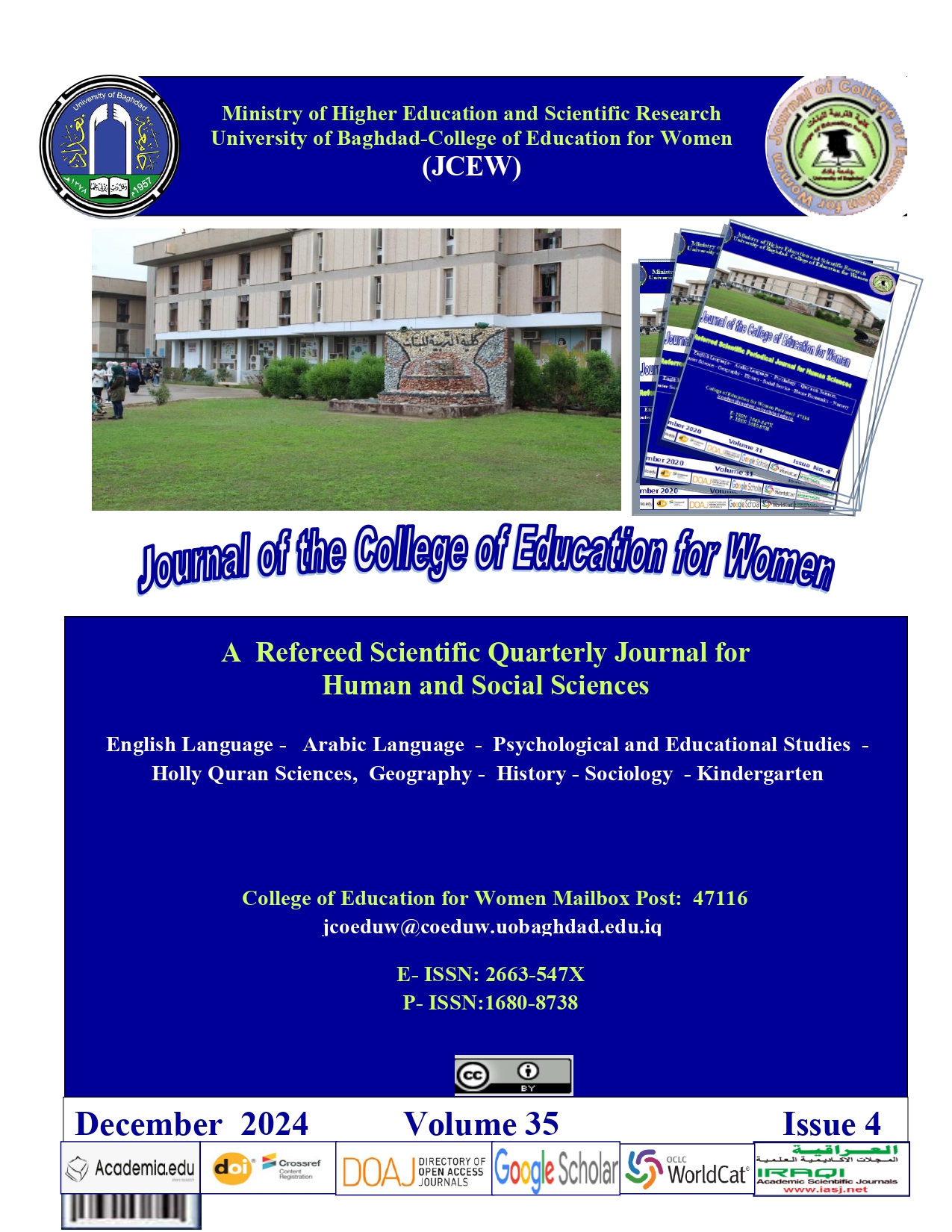Early Childhood Development in Iraq: Challenges and Future Policies
DOI:
https://doi.org/10.36231/coedw.v35i4.1769Keywords:
Early childhood development, challenges, future policiesAbstract
This research aims to contribute to improving the reality of early childhood in Iraq and its development by identifying the most prominent challenges on the one hand, and presenting a set of policies as a basis for moving towards a sound construction process in accordance with thoughtful implementation steps on the other hand. One of the most prominent challenges: low enrollment rates for children in pre-school education, reaching 11% compared to population growth rates. This is a very low percentage, below the level of ambition internally and below the level of the countries, surrounding Iraq - at the very least - and this percentage is an inevitable a serious sign should watch to identify the causes and treatments. The infrastructure challenge: the severe shortage in the number of buildings, classrooms, and the inability of what is available to accommodate large numbers of learners. Challenging of legislation and laws: compulsory education is limited to the primary education in the Iraqi legislation and laws in force, according to the text of the 2005 Iraqi Constitution, Article (34) thereof, and the Ministry of Education Law (22) of 2011. As for the most prominent future policies: enrollment policy, changing the public education system in Iraq 4*4*4 and enrolling the early childhood stage in primary education. Infrastructure policy (buildings): Including the construction of kindergartens with a Chinese loan, and allocating the revenues of the National Campaign for School and Kindergarten Construction Law No. 19 of 2019 to build kindergartens as a priority for the next five years.
Downloads
Published
Issue
Section
License
![]()
All articles published in Journal of College of Education for Women are licensed under a Creative Commons Attribution 4.0 International License.











